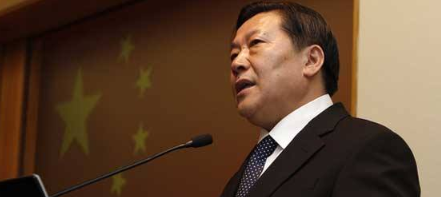The Central Committee for Discipline Inspection (CCDI), China's main corruption-busting agency, has placed former internet appointed leader, Lu Wei, under investigation on November 21, 2017.
The revelation marks the fall of a once high-flying political figure who was one of the leading persona behind China's efforts to police the internet within its borders. However, there should be no illusion the move to investigate him signals a change in policy-almost as a reminder of that, news surfaced that Skype disappeared from China's app stores around the same time as the investigation was announced.
As the government order tells online publishers to 'find and delete negative comments attacking the system', China has taken action to censor every conversation or conversation of its censor-in-chief's censure, apparently dreadful as the country's 750 million internet users might use his downfall to attack the Communist party's draconian online controls.
One week after China was re-crowned the world's worst contravener of internet freedoms, a leaked censorship command indicated online publishers had received instructions to extinguish debate over the toppling of former internet tsar Lu Wei.
Furthermore, on Tuesday it appeared that Lu, who ran China's cyberspace administration from 2014 until last year, had fallen victim to Xi Jinping's high-profile war on corruption.
Upon taking office, Xi swore to crack down on "tigers and flies" or high-level officials and local civil servants alike who are guilty of abusing their power. Most of the officials investigated were removed from office and faced accusations of bribery and abuse of power, although the range of alleged abuses varied widely.
As of 2016, the campaign has 'netted' over 120 high-ranking officials, including about a dozen high-ranking military officers, several senior executives of state-owned companies, and five national leaders. More than 100,000 people have been indicted for corruption.
The campaign is part of a much wider drive to clean up malfeasance within party ranks and shore up party unity. It has become an emblematic feature of Xi Jinping's political brand.
Executed largely under the direction of the Central Commission for Discipline Inspection and its Secretary Wang Qishan along with corresponding military and judicial organs, the campaign was notable in implicating both incumbent and former national-level leaders, including former Politburo Standing Committee (PSC) member Zhou Yongkang and former military leaders Xu Caihou and Guo Boxiong. Such investigations broke the unspoken rule regarding 'PSC criminal immunity' that has been the norm since the end of the Cultural Revolution.
Meanwhile, the order, given on November 22, 2017, states that: "Please close comments on websites, WeChat public accounts, Weibo etc."
"Find and delete negative comments attacking the system, and so on," the order, which was obtained by the China Digital Times project, added.
The censorship order is far from the first time Beijing has tried to stifle discussion of how it stifles discussion.








